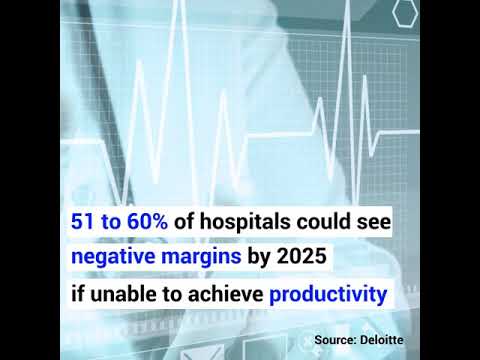Robotic Process Automation (RPA) is revolutionizing various industries, and the healthcare sector is no exception. Healthcare providers are constantly searching for innovative ways to enhance efficiency, decrease costs, and automate manual tasks. RPA has emerged as a game-changer in achieving these goals, promising better patient outcomes and improved quality of care.
RPA involves the use of software robots or bots that mimic human actions and interact with various applications to perform repetitive, rule-based tasks. By automating processes such as data entry, claims processing, appointment scheduling, and medical record management, RPA eliminates human error and streamlines workflows. This technology offers tremendous potential to drive operational excellence and enable healthcare professionals to focus more on patient care.
The implementation of RPA in healthcare brings numerous advantages. One major benefit is improved accuracy and reduced errors. Humans are prone to mistakes, especially when performing mundane and repetitive tasks. RPA ensures precision and consistency by following predefined rules and protocols, resulting in error-free execution. This ultimately leads to better patient outcomes as healthcare providers can rely on accurate data and streamline decision-making processes.
Another advantage of RPA in healthcare is increased productivity. By automating time-consuming tasks, healthcare professionals can redirect their efforts towards more critical and complex activities. For instance, doctors can spend more time with patients, nurses can focus on providing personalized care, and administrative staff can engage in strategic initiatives. The automation of manual tasks through RPA leads to enhanced productivity and resource optimization, creating a positive ripple effect throughout the healthcare system.
RPA also has a significant impact on cost reduction. In the current healthcare landscape, organizations face escalating expenses, and finding ways to cut costs is imperative. RPA offers a cost-effective solution by eliminating the need for additional staff to handle repetitive tasks. Bots can work 24/7 without breaks or vacations, reducing labor costs and increasing operational efficiency. By reallocating resources and reducing manual interventions, healthcare providers can achieve substantial cost savings while maintaining high-quality care.
Furthermore, RPA enhances data security and compliance in healthcare. Patient data privacy and confidentiality are of utmost importance, and RPA ensures adherence to regulatory requirements. Bots can securely handle sensitive information without the risk of human error or unauthorized access. RPA also enables healthcare providers to maintain accurate and up-to-date documentation, ensuring compliance with legal and industry standards. By automating data management processes, RPA strengthens data security practices and safeguards patient information.
Despite the numerous benefits of RPA in healthcare, some challenges need to be addressed. The implementation of RPA requires careful planning and collaboration among various stakeholders. It is essential to assess existing processes and identify tasks suitable for automation. Training and upskilling staff to work alongside bots become crucial. Additionally, effective change management strategies must be implemented to ensure smooth transition and acceptance of RPA technology.
Robotic process automation has already made significant strides in the healthcare industry. For example, RPA can be deployed in claims processing, accelerating the reimbursement process and reducing errors. It can automate appointment scheduling, improving patient satisfaction and reducing no-show rates. RPA can also facilitate medical record management by digitizing and organizing patient information. These are just a few applications of RPA, and the possibilities are vast.
In conclusion, the integration of Robotic Process Automation in the healthcare industry holds immense potential for improving efficiency, reducing costs, and ultimately enhancing patient outcomes. By automating manual tasks, RPA enables healthcare professionals to focus on delivering high-quality care, while bots handle repetitive and time-consuming processes. The use of RPA in healthcare enhances accuracy, increases productivity, reduces costs, strengthens data security, and ensures compliance with regulations. As healthcare providers continue to embrace technological advancements, RPA will play a vital role in transforming the healthcare landscape for the better.
Industrial Robot
“Enhancing Patient Outcomes: Unleashing the Power of Robotic Process Automation in Healthcare”


